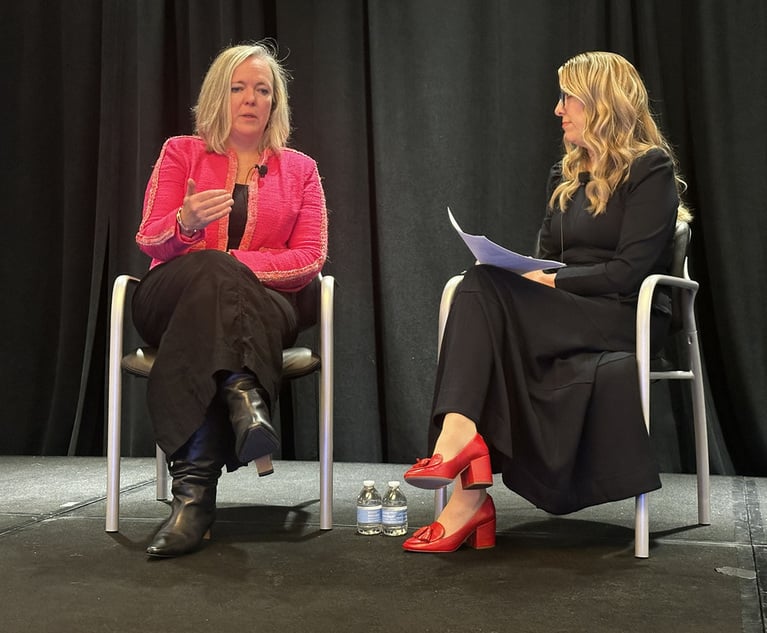 Photo: Shutterstock.com
Photo: Shutterstock.comFDA Issues Draft Guidance on Tobacco Products
Retailers may receive a letter to stop selling not substantially equivalent, or NSE, products, meaning the products are not similar to already legally marketed products, therefore retailers can't sell those products until they are cleared by the FDA.
February 28, 2019 at 05:39 PM
3 minute read
The U.S. Food and Drug Administration issued a draft guidance Thursday on its enforcement policy for tobacco products, saying retailers have 30 days to sell off products that are not similar to FDA-approved products.
Retailers may receive a letter to stop selling not substantially equivalent, or NSE, products, meaning the products are not similar to already legally marketed products, therefore retailers can't sell those products until they are cleared by the FDA.
“When final, this new draft guidance will explain to regulated industry, including manufacturers and retailers, the FDA's current thinking regarding its enforcement policy for certain marketed tobacco products for which the agency issues an order finding the product doesn't meet the public health standards under the law,” FDA Commissioner Scott Gottlieb said in the press release announcing the proposed rule.
In 2009, the Tobacco Control Act was passed and gave the FDA authority over regulating tobacco products. Products including cigarettes, smokeless tobacco and roll-your-own tobacco products that were in the market before 2007 were grandfathered in and did not need to be approved by the FDA to be sold. Newer products in the marketplace needed to be approved by the FDA.
One of the ways companies could keep certain products on their shelves was to show that a new product was the same as a predicate product or show that it was substantially equivalent. The FDA allowed for companies to submit provisional applications up until March 2011 to let them continue selling their products.
Azim Chowdhury, a partner at Keller and Heckman in Washington, D.C., said he expects the FDA will be issuing several approvals of NSE products from the provisional applications once the guidance becomes finalized.
“As someone who has clients who have submitted provisional applications, I think the FDA is very soon going to start issuing a whole bunch of approvals and NSEs,” Chowdhury explained.
Stacy Ehrlich, a partner at Kleinfeld Kaplan & Becker in Washington, D.C., said the draft guidance is the FDA's way of letting retailers know they have time.
“I think retailers were nervous,” Ehrlich said. “Now they know the FDA won't take action on the date the notice is posted to the FDA's website. They can still sell through for 30 days.”
Ehrlich said that while people can comment on the draft guidance, she's not sure if that 30-day window will be extended.
“They might file comments arguing that it's not long enough, but the FDA doesn't have to allow anytime,” Ehrlich explained. “They don't have to allow any.”
The FDA is seeking comments on the guidance and will issue a final guidance once all comments have been collected.
“We understand that such a change in the marketing status for a product may require companies to take a series of steps to implement its complete market withdrawal, and the process could take time to fully implement,” Gottlieb said in the press release. “With that in mind, the agency's new policy would include a revised short sell-off period for retailers before the FDA intends to take action to ensure the products are no longer being sold.”
This content has been archived. It is available through our partners, LexisNexis® and Bloomberg Law.
To view this content, please continue to their sites.
Not a Lexis Subscriber?
Subscribe Now
Not a Bloomberg Law Subscriber?
Subscribe Now
NOT FOR REPRINT
© 2024 ALM Global, LLC, All Rights Reserved. Request academic re-use from www.copyright.com. All other uses, submit a request to [email protected]. For more information visit Asset & Logo Licensing.
You Might Like
View All
Health Care Giants Sue FTC, Allege Lina Khan Using Loaded Process to Vilify Pharmacy Benefit Managers
3 minute read
Porsche's Venture Capital Arm Adds General Counsel From Clifford Chance

How a 200,000-Worker Global Enterprise Took Down the Silos and Made ESG Its Mission
4 minute read
Corporate Counsel's 2024 Award Winners Performed Legal Wizardry, Gave a Hand Up to Others
Trending Stories
- 1First California Zantac Jury Ends in Mistrial
- 2Democrats Give Up Circuit Court Picks for Trial Judges in Reported Deal with GOP
- 3Trump Taps Former Fla. Attorney General for AG
- 4Newsom Names Two Judges to Appellate Courts in San Francisco, Orange County
- 5Biden Has Few Ways to Protect His Environmental Legacy, Say Lawyers, Advocates
Who Got The Work
Michael G. Bongiorno, Andrew Scott Dulberg and Elizabeth E. Driscoll from Wilmer Cutler Pickering Hale and Dorr have stepped in to represent Symbotic Inc., an A.I.-enabled technology platform that focuses on increasing supply chain efficiency, and other defendants in a pending shareholder derivative lawsuit. The case, filed Oct. 2 in Massachusetts District Court by the Brown Law Firm on behalf of Stephen Austen, accuses certain officers and directors of misleading investors in regard to Symbotic's potential for margin growth by failing to disclose that the company was not equipped to timely deploy its systems or manage expenses through project delays. The case, assigned to U.S. District Judge Nathaniel M. Gorton, is 1:24-cv-12522, Austen v. Cohen et al.
Who Got The Work
Edmund Polubinski and Marie Killmond of Davis Polk & Wardwell have entered appearances for data platform software development company MongoDB and other defendants in a pending shareholder derivative lawsuit. The action, filed Oct. 7 in New York Southern District Court by the Brown Law Firm, accuses the company's directors and/or officers of falsely expressing confidence in the company’s restructuring of its sales incentive plan and downplaying the severity of decreases in its upfront commitments. The case is 1:24-cv-07594, Roy v. Ittycheria et al.
Who Got The Work
Amy O. Bruchs and Kurt F. Ellison of Michael Best & Friedrich have entered appearances for Epic Systems Corp. in a pending employment discrimination lawsuit. The suit was filed Sept. 7 in Wisconsin Western District Court by Levine Eisberner LLC and Siri & Glimstad on behalf of a project manager who claims that he was wrongfully terminated after applying for a religious exemption to the defendant's COVID-19 vaccine mandate. The case, assigned to U.S. Magistrate Judge Anita Marie Boor, is 3:24-cv-00630, Secker, Nathan v. Epic Systems Corporation.
Who Got The Work
David X. Sullivan, Thomas J. Finn and Gregory A. Hall from McCarter & English have entered appearances for Sunrun Installation Services in a pending civil rights lawsuit. The complaint was filed Sept. 4 in Connecticut District Court by attorney Robert M. Berke on behalf of former employee George Edward Steins, who was arrested and charged with employing an unregistered home improvement salesperson. The complaint alleges that had Sunrun informed the Connecticut Department of Consumer Protection that the plaintiff's employment had ended in 2017 and that he no longer held Sunrun's home improvement contractor license, he would not have been hit with charges, which were dismissed in May 2024. The case, assigned to U.S. District Judge Jeffrey A. Meyer, is 3:24-cv-01423, Steins v. Sunrun, Inc. et al.
Who Got The Work
Greenberg Traurig shareholder Joshua L. Raskin has entered an appearance for boohoo.com UK Ltd. in a pending patent infringement lawsuit. The suit, filed Sept. 3 in Texas Eastern District Court by Rozier Hardt McDonough on behalf of Alto Dynamics, asserts five patents related to an online shopping platform. The case, assigned to U.S. District Judge Rodney Gilstrap, is 2:24-cv-00719, Alto Dynamics, LLC v. boohoo.com UK Limited.
Featured Firms
Law Offices of Gary Martin Hays & Associates, P.C.
(470) 294-1674
Law Offices of Mark E. Salomone
(857) 444-6468
Smith & Hassler
(713) 739-1250






